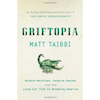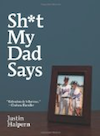books
October 7, 2012 10:41:21.843
I admit to a weakness for post-apocalyptic fiction - I love a good "SHTF" book. The thing to keep in mind though, is this: most of these books are highly unrealistic. There are a few scenarios I can think of where things really would collapse in terrible ways:
- Some kind of super bug that wipes out a high percentage of the population (much worse than the black death, say)
- An extinction level asteroid/comet strike
- A "Carrington Event" type of solar blast that took out a large percentage of the world's transformers
What a lot of these books posit is some kind of economic collapse that leads to chaos after the value of the dollar implodes. The problem with that kind of thing is simple: we have real life examples of developed nations hitting a financial collapse (Argentina, and now, Greece). Are there problems? Yes. Do they lead to a collapse of the grid and some kind of Hobbesian war of all against all? Not so much.
I'll probably keep reading this kind of thing because they are a guilty pleasure for me. I just won't end up being one of those prepper types stockpiling two years of food, water, and ammo in my basement because of it.
posted by James Robertson
books
December 14, 2011 17:22:21.000
Farhad Manjoo has pretty much summarized how I feel about Amazon, when compared to physical bookstores:
Compared with online retailers, bookstores present a frustrating consumer experience. A physical store—whether it’s your favorite indie or the humongous Barnes & Noble at the mall—offers a relatively paltry selection, no customer reviews, no reliable way to find what you’re looking for, and a dubious recommendations engine. Amazon suggests books based on others you’ve read; your local store recommends what the employees like. If you don’t choose your movies based on what the guy at the box office recommends, why would you choose your books that way?
Consider the kind of history books I look for - I tend to get interested in a period, and then I want other books on that period. At the local bookstore, I'll be lucky if I can find even a single book on the topic at hand, and no one there is likely to know anything about it. At Amazon? I have a nearly endless selection, and the recommendation engine pushes things that I'm highly likely to be interested in.
So sorry, I can brew my own coffee, and the chairs in my house are pretty nice, thanks :)
Technorati Tags:
bookstores
posted by James Robertson
books
October 22, 2011 19:15:24.687
|
|
I just finished A Dance with Dragons: A Song of Ice and Fire: Book Five - and as per usual, he's thrown a few curveballs at us. Here we are in book five, and we are still being introduced to new characters. There's also a shocking (to me, at least) death near the end of the book - someone who I was sure was going to be a player all the way to the end bought the farm.
- and as per usual, he's thrown a few curveballs at us. Here we are in book five, and we are still being introduced to new characters. There's also a shocking (to me, at least) death near the end of the book - someone who I was sure was going to be a player all the way to the end bought the farm.
|
I'm still not pleased with what he's doing with Arya - I'd like to see her come back into the main story somehow. At least Tyrion is still a major player - I like that character quite a bit, and he keeps managing to land on his feet (although I'm curious to see how the deal he makes towards the end of this book plays out; his cards seem really weak at this point.
My one complaint was that the book was hard to get back into. Like the Wheel of Time books, the gap between installments has just been too long, and by the time a new one comes along, I've forgotten where the story was. At least winter has finally arrived :)
Technorati Tags:
game of thrones
posted by James Robertson
books
July 31, 2011 18:33:00.674
 
|
I just finished reading Griftopia - a fascinating look at the financial and political situation of the US after the 2008 crisis by Matt Taibbi. It's not an objective book, but if you take that into account, it's a very well written look at what happened (and more importantly, why it happened). - a fascinating look at the financial and political situation of the US after the 2008 crisis by Matt Taibbi. It's not an objective book, but if you take that into account, it's a very well written look at what happened (and more importantly, why it happened).
I've read pretty widely on this subject, and I think this book is one of the few I've read that really tries to look under the hood, as it were. If you want an unsparing examination of what's gone wrong, this is one book you should definitely look at.
|
One small caveat - if you're bothered by profanity, this book may not be for you. It's laced with it - in some ways, it reads more like a conversation than like typical prose. If you can get past that, it's worth a look. Also, check your ideology at the door. While my worldview and Taibbi's are pretty far apart, he doesn't spare anyone (or any party) in this book.
Technorati Tags:
financial crisis
posted by James Robertson
books
July 19, 2011 11:05:43.372
Borders is liquidating - all I can say is wow. I spent many a happy hour browsing there, but Amazon has replaced them for me. It's not about e-books (although that accelerated the trend) - it's really about two things:
- Amazon's "shelf" is infinitely bigger, and includes things (independent publishers) that Borders never had
- Amazon's recommendation engine is far, far better than scanning shelves or asking an employee
That latter point is what tipped me. At the store, I really only saw what they had in stock. At Amazon, I see things I never would have thought of, based on other books I've read or am looking at. Add in the instant gratification of an ebook download, and it's the deathknell of physical bookstores for me.
posted by James Robertson
books
March 3, 2011 21:37:32.721
posted by James Robertson
books
February 22, 2011 10:30:45.000
Here's an interesting idea - LOTR from the other side's perspective. Sort of a large sacle fleshing out of the idea that "the victors write the history books" :)
Technorati Tags:
lotr
posted by James Robertson
books
December 30, 2010 11:27:47.743
Here's something I hadn't thought of with the rise of ebooks - the loss of page numbers. I'm quoting John Holbo, who ponders the issue:
I’m thinking about quoting our John in something I’m writing (yes, on Zizek). But I can’t footnote a Kindle edition. No pages. What will the world come to? Bibliography has gotten a bit old and odd in the head in the age of the internet, but the existence of pages themselves is kind of a watershed.
The Kindle app (and presumably the Kindle as well) show you a "percentage reached" instead of a page number. I understand that - given the various form factors involved (multiple Kindle sizes, iPads, smart phones....), what does a page number even mean? It should be simple to graft the physical form page number into the metadata, but as we go forward, there may well be books for which no physical form exists. What then? Perhaps we'll have to footnote based on the word count of the reference? Some sort of standard will have to arise, I guess.
Technorati Tags:
footnotes
posted by James Robertson
books
December 19, 2010 11:29:32.043
I just finished reading a very interesting book - "Spin " by Robert Charles Wilson. I also finished the second (of three?) books in the series, "Axis
" by Robert Charles Wilson. I also finished the second (of three?) books in the series, "Axis ". The books are connected, but can be read separately - it does help to read Spin first so that you know how things got to be the way they are.
". The books are connected, but can be read separately - it does help to read Spin first so that you know how things got to be the way they are.
 
|
To summarize the plot of the first book, one night the stars go out. Panic ensues, and then things get progressively more odd as the reason for the blackout is found: the Earth has been wrapped in some kind of barrier that keeps time passing normally as billions of years pass beyond the barrier. That gives rise to a bunch of "end of the world" cults, as it seems obvious what will happen if the barrier is removed after enough time has passed that the Sun itself starts to expire.
|
 
|
Suffice to say that doesn't play out exactly as the doomsayers expect - but neither do things "go back to normal", either.
The second book is concerned with what happens after the spin barrier is removed. I don't really want to get too far into that, as doing so would spoil the first book. It leaves a lot for a follow on book though, so I'm certainly looking forward to that.
|
While the setting is near future, and it's clearly a sci-fi setting, it's mostly about the people. I became very attached to a number of the people - one thing I will say is that Wilson is not afraid to kill off characters, even ones that have become quite central to the story thus far. That keeps you reading - no one is safe. I'm looking foward to book three, and if you like pondering how people would collectively and individually handle a presumed apocalypse - that then doesn't play out as the worst fears had it - these are great books.
Technorati Tags:
scifi
posted by James Robertson
books
December 19, 2010 10:16:23.000
I've always been a big reader - I just finished two sci fi books on my last trip to Dallas (I still need to post the reviews for those). What I'm finding lately is this: I'd much prefer to read on my iPad than read on paper.
Why? A few reasons:
- The iPad is light. I can carry as many books as I like on it, and it doesn't get heavier
- I can buy a new book anytime I have access to the net
- I don't ever have to worry about losing my place - the Kindle app manages that for me
I think the weight thing is the big one. I'd really rather not cart a bunch of books in my travel bag - especially since they are just so much dead weight after I've finished. Even with books I've been waiting for, like Towers of Midnight - I'll wait for the digital edition. The hardcover is too big, and even the paperback (when it comes out) will take up a lot of space.
- I'll wait for the digital edition. The hardcover is too big, and even the paperback (when it comes out) will take up a lot of space.
I just want the bits :)
posted by James Robertson








